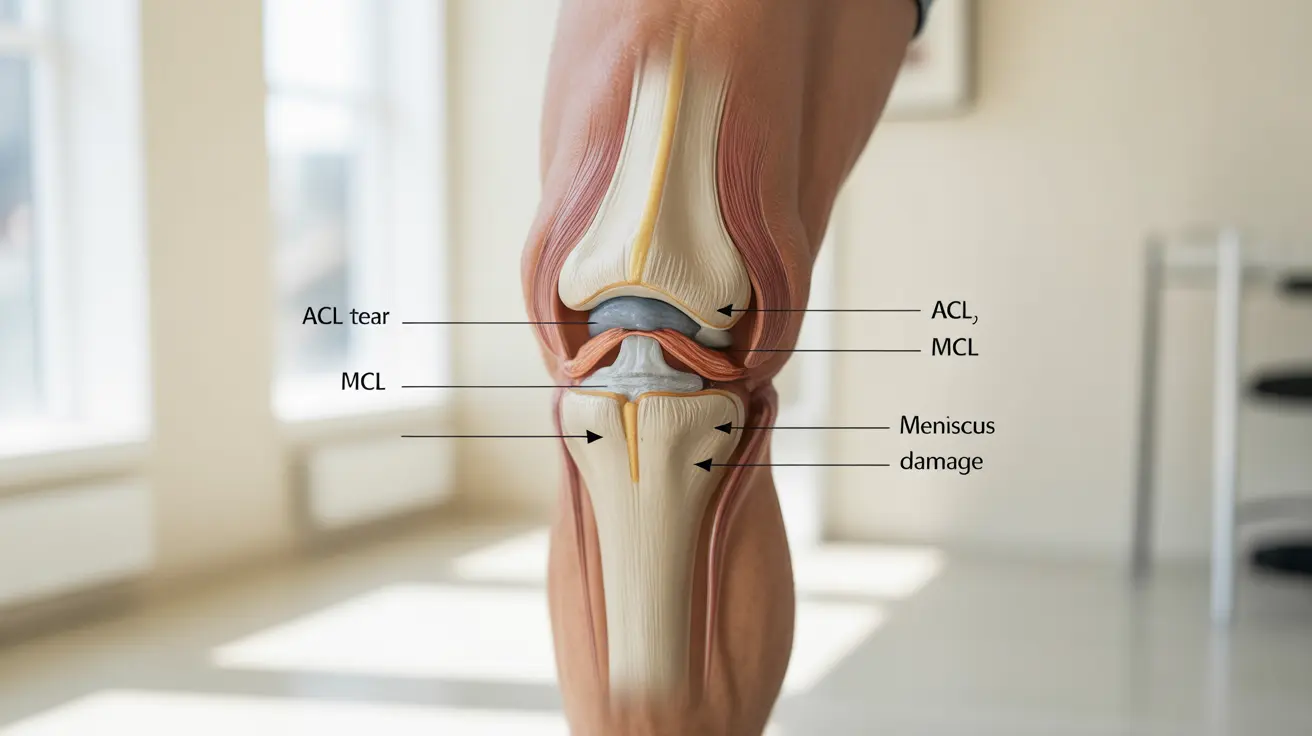Experiencing a twisted knee accompanied by a popping sound and pain can be both alarming and concerning. This type of injury often indicates potential damage to important knee structures and requires proper attention and care. Understanding the significance of these symptoms and knowing how to respond can make a crucial difference in your recovery.
When you hear a pop in your knee during a twisting motion, it's essential to take the situation seriously, as it could signal damage to ligaments, meniscus, or other vital knee components. Let's explore what this means, how to respond, and when to seek professional medical care.
Common Causes and Immediate Signs
A popping sound in the knee during a twisting motion typically occurs due to sudden trauma or excessive force applied to the joint. The most common structures affected include:
- Anterior Cruciate Ligament (ACL)
- Medial Collateral Ligament (MCL)
- Meniscus
- Posterior Cruciate Ligament (PCL)
Immediate signs that often accompany the popping sound include:
- Sudden, sharp pain
- Immediate swelling
- Difficulty bearing weight
- Sensation of instability
- Reduced range of motion
Immediate Care Steps
If you've twisted your knee and heard a pop, taking immediate action is crucial for preventing further damage and promoting healing:
RICE Protocol
- Rest: Avoid putting weight on the affected knee
- Ice: Apply cold packs for 15-20 minutes every 2-3 hours
- Compression: Use an elastic bandage to reduce swelling
- Elevation: Keep the knee above heart level when possible
Additional First Aid Measures
While following the RICE protocol, also ensure you:
- Stop any physical activity immediately
- Avoid any movements that cause pain
- Take over-the-counter pain relievers if needed
- Use crutches or a cane if available
When to Seek Medical Attention
Certain symptoms indicate the need for immediate medical evaluation:
- Severe pain that doesn't improve with rest
- Significant swelling within a few hours
- Inability to bear any weight
- Visible deformity
- Knee instability or "giving way"
- Fever or redness around the joint
Treatment Options
Treatment approaches vary depending on the severity and specific structure affected:
Conservative Treatment
- Physical therapy
- Strengthening exercises
- Bracing or support
- Modified activity levels
- Anti-inflammatory medications
Surgical Intervention
Surgery might be necessary for:
- Complete ligament tears
- Severe meniscus damage
- Persistent instability
- Athletic individuals requiring full recovery
Frequently Asked Questions
What does it mean when I twisted my knee and heard a loud pop followed by pain? A loud pop accompanied by pain often indicates a significant knee injury, potentially involving ligament tears (especially ACL) or meniscus damage. This combination of symptoms requires medical evaluation to determine the exact nature of the injury.
What are the common symptoms of a ligament or meniscus tear after twisting my knee? Common symptoms include immediate pain, swelling within hours, difficulty bearing weight, instability when walking, and limited range of motion. You might also experience a feeling of the knee "giving way" or locking during movement.
How should I care for my knee immediately after hearing a popping sound and feeling pain? Implement the RICE protocol immediately: Rest the knee, apply Ice, use Compression bandaging, and Elevate the leg. Avoid putting weight on the affected leg and seek medical attention, especially if significant pain or swelling develops.
When should I see a doctor if my knee pops and then becomes swollen or unstable? Seek immediate medical attention if you experience severe pain, significant swelling, inability to bear weight, visible deformity, or persistent instability. These symptoms suggest a serious injury requiring professional evaluation.
What treatment options are available for a knee injury that causes a popping sound and difficulty moving? Treatment options range from conservative approaches like physical therapy, bracing, and anti-inflammatory medications to surgical intervention for severe cases. The specific treatment plan depends on the diagnosis, severity of the injury, and your activity level goals.




